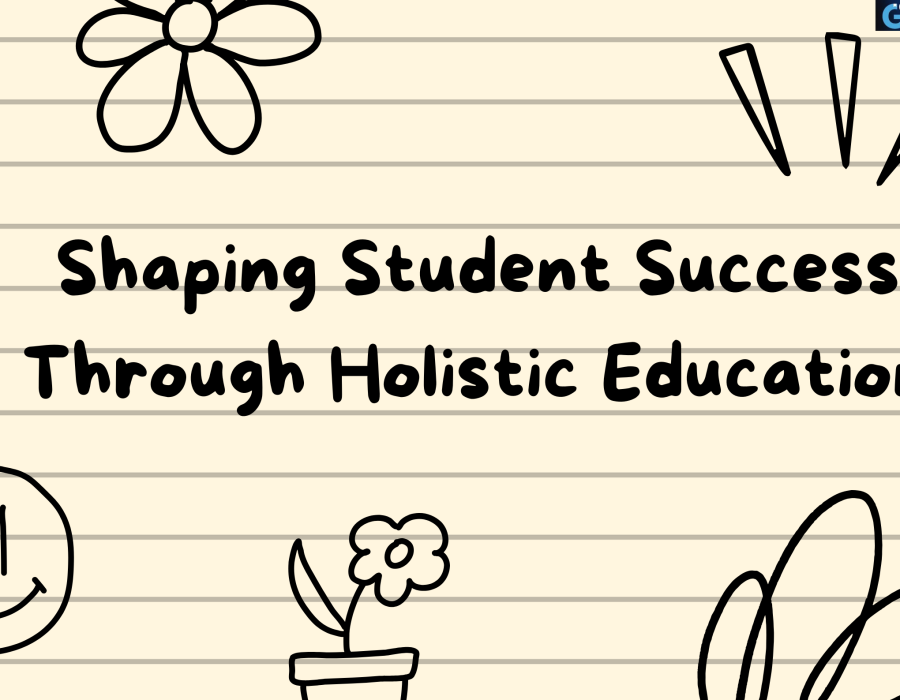Introduction: Redefining What Success Really Means
In today’s world, student success can no longer be measured by report cards alone. The ability to score well in exams may open doors, but it is emotional resilience, strong character, effective communication, creativity, and a sense of purpose that truly help students thrive in life. Holistic education is the pathway toward nurturing these essential qualities—not as add-ons, but as the core of learning.
It is about shaping students not just into high achievers, but into grounded individuals who can lead, empathize, adapt, and make meaningful contributions to society. In immersive learning environments such as a boarding school in Nainital, students are exposed to a life that blends academic challenges with emotional support, discipline with freedom, and structure with creativity—all of which shape them into well-rounded individuals ready to face the world.
The Heart of Holistic Education: Educating the Whole Child
Traditional education often focuses heavily on intellectual development, but holistic education begins with the understanding that students are more than their minds—they are emotional, physical, spiritual, and social beings.
The goal is to engage every part of the student’s being. When schools focus on nurturing the whole child, they create environments where students are not just informed but transformed. They become curious learners, emotionally aware individuals, and responsible citizens who can think critically and act compassionately.
This broader vision of education recognizes that confidence, kindness, self-reflection, and leadership are just as important as literacy and numeracy.
Fostering Emotional Well-being and Resilience
One of the most important aspects of holistic education is supporting students’ emotional health. Children and teenagers face immense pressure—academically, socially, and sometimes even at home. When schools prioritize emotional learning, students begin to understand and regulate their emotions, manage stress, and respond to challenges with resilience.
Daily check-ins, mindfulness activities, open classroom discussions, and access to school counselors provide safe spaces for emotional exploration. A student who learns how to recognize anxiety before a test, or how to express frustration respectfully, is being equipped for real-life success far beyond school.
Character Building: The True Foundation of Leadership
Grades can get you a job interview, but integrity and character determine how you lead, collaborate, and build trust. Holistic education emphasizes the development of values—honesty, empathy, responsibility, humility—that form the moral backbone of a student’s life.
Whether it's taking accountability after a mistake, helping a struggling peer, or standing up for what’s right, schools that incorporate value-based learning foster courageous, principled leaders. Through peer mentorship, community service, and reflective practices, students start to shape a strong internal compass that guides them through life’s complexities.
The Power of Creativity and Self-Expression
Every student is born with a unique voice, and holistic education ensures that voice has a place to grow. Through art, music, drama, writing, and design, students find channels to express thoughts and emotions that might be hard to put into words.
This isn’t just about cultivating future artists. Creativity fuels innovation, problem-solving, and self-confidence in every field—from science and technology to entrepreneurship and community work.
When students are given the space to be imaginative and original, they don’t just create art—they learn to think differently, take risks, and approach life with curiosity.
Academic Excellence with Real-World Relevance
Contrary to the misconception, holistic education doesn’t downplay academics—it enhances them. Students who are emotionally secure, physically healthy, and mentally curious are far more engaged in learning.
In classrooms that promote hands-on learning, interdisciplinary projects, and real-world applications, students begin to understand the “why” behind what they learn. Science isn't just theory—it becomes a tool for environmental innovation. Math isn’t just numbers—it’s financial literacy and smart decision-making.
When students see the relevance of their education, they take ownership of it. They no longer study just to pass, but to understand, build, and contribute.
Physical Wellness: A Strong Mind Needs a Strong Body
A healthy body supports a healthy mind. Holistic education includes physical activity not just for fitness, but for improving concentration, reducing stress, and developing teamwork.
Whether it’s daily sports, yoga sessions, nature walks, or movement-based learning, students learn to listen to their bodies and value wellness. They also develop discipline, routine, and a positive body image—qualities that last into adulthood.
Schools that emphasize physical health empower students with lifelong habits of exercise, nutrition, and self-care.
Community, Collaboration, and Compassion
No student grows in a vacuum. Peer relationships, teacher-student bonds, and community interactions shape how students view the world and their place in it. In a truly holistic environment, students are taught not just to compete, but to collaborate.
Team projects, group discussions, and school-wide initiatives teach communication, empathy, and listening. Students learn to appreciate diverse perspectives and become more culturally and socially aware.
They also gain a sense of belonging—one of the most important factors in mental well-being and long-term success.
The Role of Teachers as Mentors and Life Coaches
Holistic education transforms the teacher’s role. No longer just subject matter experts, teachers become mentors—guiding students through personal, emotional, and intellectual journeys.
They recognize individual strengths, encourage growth mindsets, and support students through their struggles. When a student knows that their teacher sees them as a person, not just a performer, their motivation and confidence skyrocket.
Educators in holistic schools create a nurturing culture where students feel safe to ask, fail, try again, and shine.
Conclusion: Educating for a Lifetime, Not Just a Report Card
In a world that is fast-changing and often unpredictable, the students who will thrive are those who are emotionally intelligent, adaptable, compassionate, and purpose-driven. Holistic education lays the groundwork for this kind of success.
It doesn’t ignore academics—it enriches them by embedding life skills, self-awareness, creativity, and moral grounding into every aspect of school life. Because real success isn’t just about being the best in the class—it’s about becoming the best version of yourself. And that journey starts with a school that teaches from the heart, as well as the head.





Comments